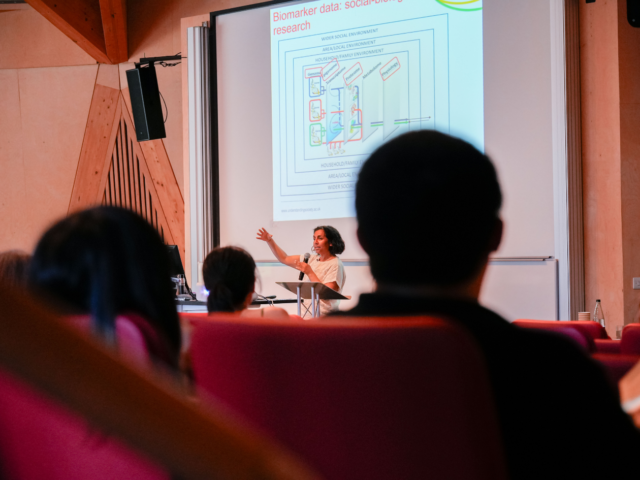As one of the largest household panel studies in the world, Understanding Society provides a rich resources for researchers from many different fields. It allows researchers and policymakers to gain a deeper understanding of issues such as poverty, unemployment or mental health, by allowing researchers to gain an understanding whether conditions are persistent or transitory. The data is also ideal for evaluating policy changes, as before and after measures are reported at individual and household level. At the same time, Understanding Society provides significant opportunities for methodological research. This has often been focused on formal experiments carried on the Innovation Panel, but there are many opportunities for methodological research on the main survey as a result of changes in design over time
The Understanding Society Fellowship Programme enables researchers to take time out to focus on research projects based on the Study’s data. Funding is available for 12-month Fellowships to undertake a project based on Understanding Society data, with additional resource for follow up dissemination and impact generation activities. Practical support will also be available from the Study team, for example, to advise on data and analysis plans and communication and impact strategies. Each fellowship call has a specific theme; previous rounds have included a focus on our biomarker and genetics data, methodological research on representativeness and mixed modes, the creation and analysis of event histories, research focusing on family dynamics, the use of linked administrative data, and policy focused projects. Details of fellowships awarded in previous rounds can be found here.
The call for new Fellows is open. Fellows appointed in this call will be expected to start their Fellowship in January 2023. In this call we are seeking Fellows to work on the following themes:
- understanding youth non-response
- improving the collection of participant contact details
- the use of biomarkers in addressing novel survey method questions
- cross-country comparative research
- research making use of the unique value of Understanding Society
How to apply
If you wish to be considered for a Fellowship under this call you need to apply using this application form by 5pm on 30 June 2022. You are strongly advised to discuss your ideas with a member of the Understanding Society team in advance of submitting your application. Please contact Jack Kneeshaw in the first instance who will put you in touch with the appropriate person to discuss your ideas with.
You can read the full call for proposals here.
What do we look for in a Fellow?
Applications will be assessed on the basis of their scientific merit and potential to enhance the usefulness of the Study as a research resource and/or generate policy impact. Any researcher based in a higher education institution is eligible to apply (except the University of Essex), but people can only have an Understanding Society Fellowship once, so previously successful applicants should not apply. Fellows can be based anywhere in the world. We welcome applications from researchers at any career stage, but you must have successfully completed PhD research to apply. Fellowships are not open to Masters or PhD students. Early careers researchers (ECRs, < 3 years post PhD) should identify a mentor in their own institution.
What does a Fellowship provide?
- Funding will be provided for the Fellow’s salary, including NI and pension costs for up to 12 months.
- Further funding is available for dissemination and impact activities in the six months following the Fellowship.
- The maximum budget per Fellowship is £70,000 for staff and dissemination related costs.
Full details of the Fellowship programme is available on our website.
Biomarkers, genetics and epigeneticsEducationEmploymentEthnicity and immigrationFamily and householdsHealth and wellbeingSurvey methodologyYoung people



